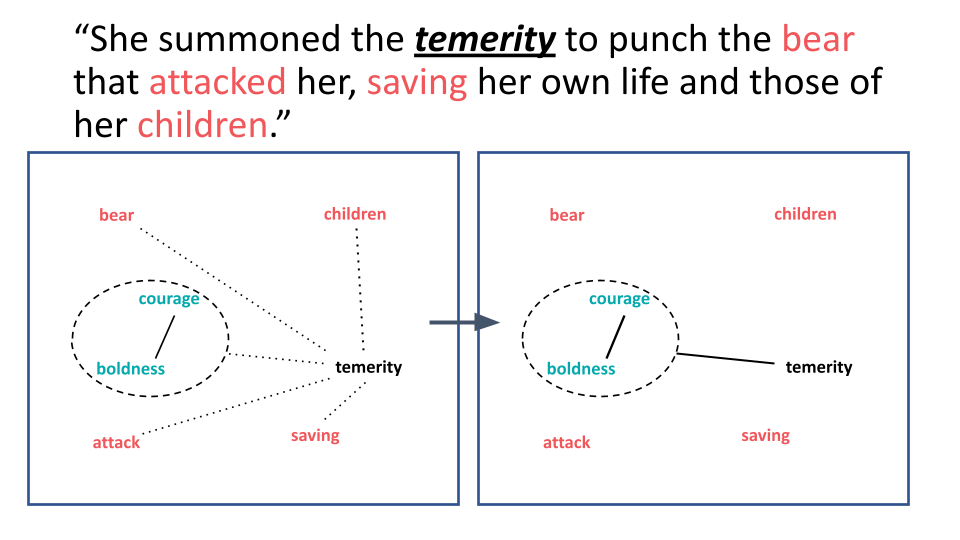Most words we know we learn from context.
Adult readers pick up new vocabulary words
as they go about their day, starting with familiarity,
and ending with the ability to define the word, and use it.
We wanted to see how a word accumulates meaning
after multiple exposures to the word in context,
so we invited people to learn the meanings of unfamiliar words
in a variety of sentence and non-sentence contexts.
Borrowing from work done previously, our lab probed
semantic associations that were deep (conceptual)
or shallow (surface level).
For example, imagine you came across the word "folderol" in this sentence:
"They thought the dancing and singing at the celebration was nothing but meaningless folderol."
In this case, would you be more likely to learn to associate folderol with "dancing" (surface level)?
Or with something conceptually related, like "nonsense"?
We probed semantic associations using reaction times in a primed lexical decision.
In this task, participants see a word (prime),
followed by another word/nonword (target), and have to make a decision about whether the target is a real word.
When the target is a real word, they should be faster when the prime is associated in their mind.
To look at memory consolidation, tested at two times,
both immediately after reading and one week later.
I've added some images from the project below.
We're currently getting ERP data for this, so check back for more!

